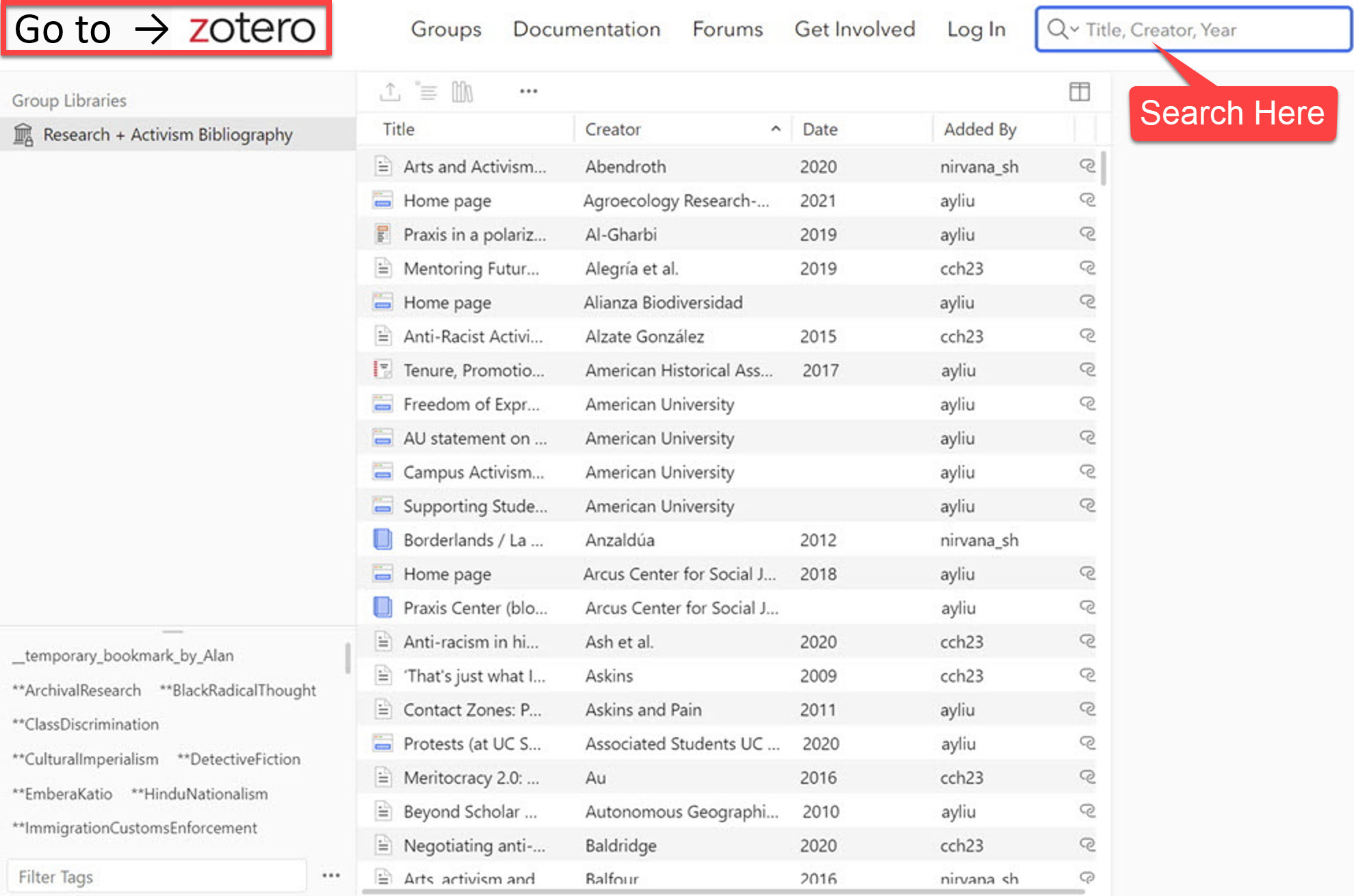Specific causes & issues: Ageism | AI Bias | AIDS | Antiracism (see also Racism) | Antiwar | Apartheid | Caste antidiscrimination | Censorship | Childcare | Class discrimination | Decolonization | Digital justice | Disability rights | Drugs | Education reform (➦ In HigherEd) | Economic Inequality | Environment (➦ Biodiversity ➦ Climate change ➦ Environmental justice) | Feminist activism | Food justice (➦ Food sovereignty | Slow food) | Freedom of speech | Gender equality (➦ Reproductive labor [See also Womens rights]) | Health care reform (➦ Health advocacy) | Heteronormativity (➦ Toxic masculinity) | Housing & zoning issues (➦ Gentrification ➦ Houselessness (including homelessness) ➦ Housing reform ➦ Skidrow) | Human rights | Indigenous rights | Information access | Infrastructure | Labor activism (➦ Adjunct instructors | Anti-work | Care work | Domestic work | Feminized labor | Reproductive labor | Sex work | Unionization) | Land politics | Language activism (➦ Linguistic discrimination | Linguistic diversity) | Legal system (➦ Criminal justice system ➦ Police reform ➦ Prison abolition) | Medical system reform | Mental health | Microaggressions | Population movement (➦ Forced displacement ★ Migration ➦ Immigration ★ Immigration activism ★ Undocumented residents rights) | Prison change (➦ Prison abolition ➦ Prison reform) | Racism (see also Antiracism) | Reproductive justice (➦ Abortion | Reproductive labor) | Right-wing activism | Surveillance | Trade treaties | Water justice | Women's rights (➦ Feminicide ➦ Violence against women)
➧ Administration
➧ Faculty (➦ Adjunct ➦ BIPOC [★ Black ★ Latinx] ➦ LGBTQ ➦ Women ➦ Tenure-line ➦ Tenured)
➧ Students (➦ BIPOC students ➦ Graduate students ➦ Undergraduate Students)
➧ Staff (non-instructional) | Campus police
➧ Policies related to politics: Academic freedom | Freedom of expression on campus | Protest & activism actions | Political campaigns on campus | Disciplinary actions
➧ Personnel policies: Hiring, promotion & tenure | Documenting scholar-activism | Personnel case diversity statements
➧ Campus resources supporting activism
➧ Discussions & critiques of higher education policies above
➧ U.K. Government(s): [TBD]
Advanced Search (on Zotero site)

Questions & Issues in Research + Activism
While working on our Research + Activism Bibliography, our team discovered what seem to us to be intriguing questions and issues bearing on the current state of activist research. These we log here as brief “observations.”
These observations are only preliminary pointers toward problems we think deserve further investigation and thought.

Is “Scholar Activism” Still the Right Name Today?
(26 Dec. 2021)
“Scholar activism” has since the late 20th century been the dominant name for methods, practices, and examples of research + activism, especially as discussed by scholars themselves embedded in higher-education institutions. But today many other institutions perform “knowledge work” mixing research and activism—institutions in the neoliberal, market-oriented social sectors and also those in the NGO and other non-profit, cause-driven areas (see In Other Organizations). They do so in ways that overlap with educational institutions in methods (e.g., digital) and personnel (the same pool of knowledge workers shaped by higher education), even if the motives and incentives that drive them are not always the same. How must “scholar activism” be rethought when an increasing proportion of research for activism is shared across many institutions and practices of research? How does scholar activism relate to other kinds of expert activism in an era when populist movements and other forces mutate the perceived role of “expertise”?
How is “Community Engagement” Relevant to Social-Justice Activism Now?
(26 Dec. 2021)
A significant number of works we found for our bibliography concerns “community engagement” for higher-ed. This term conventionally refers to projects, initiatives, and policies through which higher-ed universities work with, or positively impact, the communities around them. But what is the relation of community engagement today to “research + activism,” which has an edgier activist, rather than just engaged, persona? There is now an unclear zone of overlap between the concepts, practices, goals, and ethos of community engagement and activism. For example, is working with, or on, a university’s local community the same or different as an action like a march designed to bring a local event to global media attention?
How much, and how fast, should universities and colleges develop policies for research + activism?
(28 Dec. 2021)
New intellectual developments affect research and teaching very quickly. New social, cultural, political, economic, and other developments also influence research and teaching fairly rapidly—though possibly at a slower rate (e.g., the generational change circa the 1970s when new social movements inspired new research and teaching). Far slower to change are the organizational structures and underlying logics of higher-education institutions. For example, the separate formations of the sciences, social sciences, and humanities and arts are typically fossilized in organizational “colleges,” “divisions,” and other entities descended from the nineteeth century (and earlier) in longue durée configurations. (To borrow a concept from Michel Foucault, we might refer to these as dispositifs or “apparatuses” characteristic of an era.)
Somewhere between the rapid tempo of change in research or teaching, and the glacial evolution of institutional structures, is the chaotic, lurch-forward momentum of higher-education policies. As always with such policies, they are stuck in stasis, until suddenly they are not.
Today, this is clearly the situation of university and college policies bearing on research + activism. There is great urgency in works we found for our bibliography about how activist research affects academic promotion and hiring—especially tenure for faculty. But rarely are there any university and college policies we have been able to find that address these issues explicity or fully—e.g., to spell out safeguards for activism in research or to make explicit the evaluation criteria, metrics, or incentives for such activity.
Meanwhile, though, we observe a lurch-forward proliferation of chaotic standalone policies on component issues of research + activism—such as policies on academic freedom, freedom of expression, and protests or political campaigns on campus. We also observe universities and campus providing resources or safe-harbor for activism.
Given the current era in which social justice concerns are a major driver of research and teaching—and of declared but often not yet realized restructurings of educational institutions to enfold social justice in their core work—it seems clear that we await some leading, influential higher-ed institution or group of such institutions to create an explicit policy that can serve as a template for incentivizing and governing research + activism.
rev. 27 Dec. 2021
